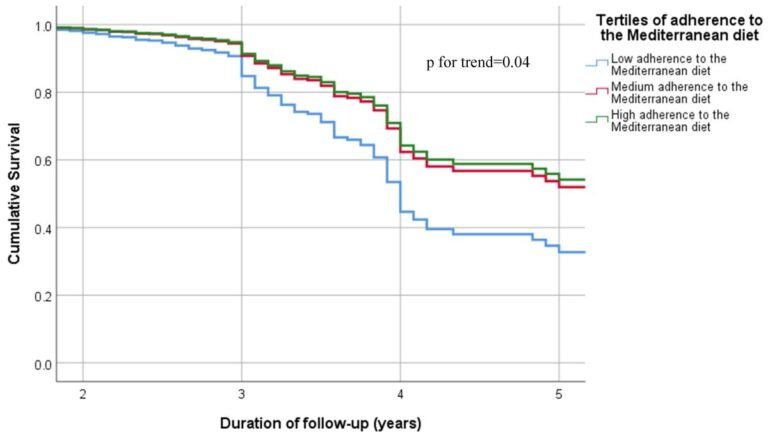Aging brings about various changes in an individual’s life, both physically and mentally. Although physical health issues are often prioritized, mental health, especially for older women, is equally important and deserves attention. Recent studies have revealed the association between dietary patterns and mental health, providing valuable insights for both individuals and health care providers.
Mediterranean diet and mental health
A study published in the British Journal of Nutrition found a link between the Mediterranean diet (MD) and mental health in older women. This study found that adherence to the highest tertile of MD was inversely associated with depressive symptoms, especially in women. This means that the more closely an older woman follows a Mediterranean diet, the less likely she is to experience symptoms of depression.
The study, which included 325 men and 473 women, found that women who followed a Mediterranean diet had a 60% lower risk of depression. This highlights that a healthy diet can play an important role in promoting mental health in older women.
Key elements of the Mediterranean diet
The Mediterranean diet is rich in fruits, vegetables, whole grains, olive oil, and lean proteins such as fish and poultry. Also, eat moderate amounts of dairy products and limit your intake of red meat and processed foods. This study found that certain elements of this diet were particularly beneficial in reducing symptoms of depression. These include:
- high consumption of fish
- High ratio of monounsaturated fatty acids to saturated fatty acids (MUFA/SFA)
- Intake of nuts and fruits
These findings provide evidence that improved advice on healthy eating may particularly benefit the mental health of older women.
Understand connections
This study provides compelling evidence of a link between the Mediterranean diet and mental health, but further research is needed to fully understand the underlying biological processes. The high levels of antioxidants, vitamins, and minerals found in the Mediterranean diet are thought to help fight brain inflammation that is associated with depression. Eating high amounts of fish, which are rich in omega-3 fatty acids, may also contribute to brain health.
practical meaning
These findings highlight the importance of dietary choices in mental health. Healthcare providers should consider dietary advice as part of a holistic approach to mental health care, especially for older women. Meanwhile, individuals can take active steps to incorporate the principles of the Mediterranean diet into their daily eating habits. This may include increasing your intake of fruits, vegetables, and fish, and choosing healthy fats such as olive oil over saturated fats.
In conclusion, this study adds to the body of evidence suggesting that a healthy diet, and especially physicians, play an important role in promoting mental health in older adults. Although further research is needed to further understand this association, our findings highlight the potential of dietary interventions in the management of mental health, particularly depression in older women. This is a reminder that looking at your health holistically, including your mental health and dietary habits, can improve your quality of life in later life.


